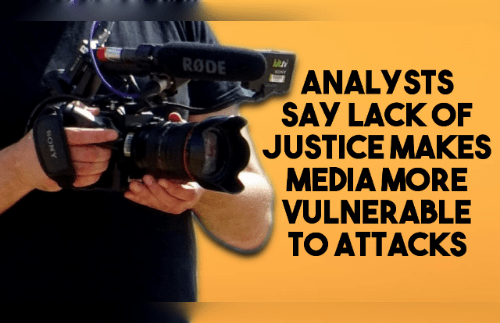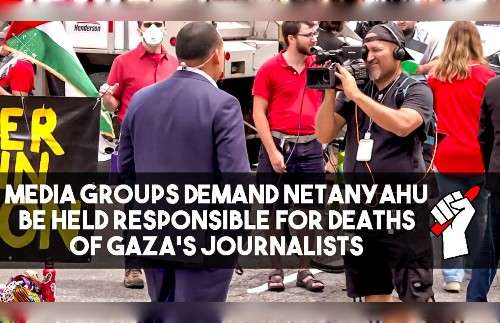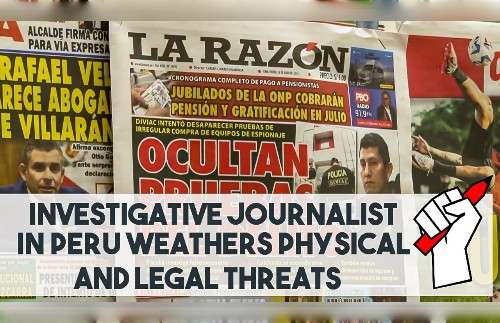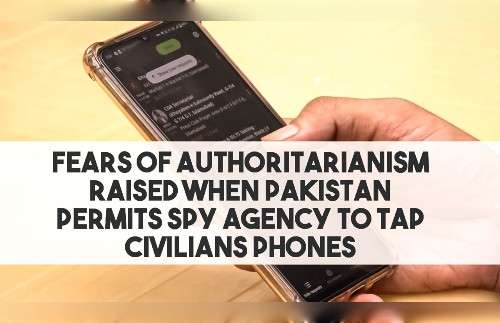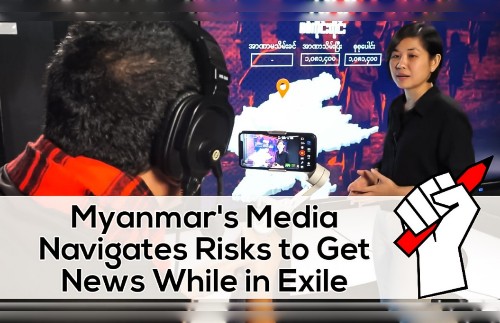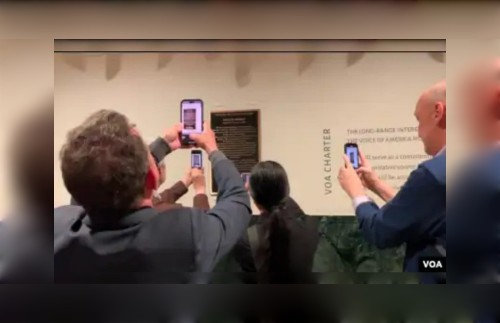Here is the excerpts from the article published in RadioFreeEurope/RadioLiberty

Strict control of broadcast television has been pa key element of Russian President Vladimir Putin’s nearly two decades in power. The vast majority of Russians continue to get most of their information from TV, giving the Kremlin a powerful tool for shaping public perceptions.
Editor’s Note: We select the article published by RFE/RL few months back and republishing the extracts of the full interview.We think similar situation prevails in India. Media specially national television news channels ( except two or three) in India working as a propaganda machinery för the ruling party’s government.
Politicians should remember that journalists have the right to act as eyes and ears of the public.In Indian democracy, to win an election by hook or crook is more important than good governance. Hostile attitudes towards media is a dangerous and alarming trend. Polarization even in media, saddens us the most. Party aligned media’s partisan and biased reporting often misled the public and populist political leaders across the world including India have the habit to termed renowned media outlets as fake news when they dislike any news or simply say we don’t allocate lands to certain media group so they are now against us and the public wholeheartedly believes their ‘beloved’ leaders.
They forget the notion that it is the duty of a journalisti to keep a tab on the ruling government’s work and question for matters of national interest.
Leonid Krivenkov worked as a camera operator for the Rossia-24 round-the-clock news channel from 2006 until his retirement in 2016. He worked in Studio Seven, where live broadcasts are organized, and recorded programs featuring leading political and cultural figures. He learned the ins and outs of Rossia-24’s parent company, the All-Russia State Television and Radio Company(VGTRK).

Krivenkov spoke with RFE/RL Russian Service correspondent Dmitry Volchek about what goes into Russian state TV broadcasts — from how they squeeze out troublemakers and what they shout into the anchorwoman’s earpiece to what “Give me an 8!” means.I was shocked that they would delay a commercial flight just so Rossia-24 could do a telephone interview.”
“I was shocked that they would delay a commercial flight just so Rossia-24 could do a telephone interview.”
RFE/RL: When you began working at Rossia-24, did you have the political views that you have now? Or were they changed by what you saw there?
Leonid Krivenkov: I have always been very cautious regarding the ruling regime. I understood that they pursue their own interests and deceive the public while pretending they adopt laws for the general good. But while I was there I began to take an interest in politics, since I was sitting there all day long watching the news and discussing developments with the moderators. Sometimes after work we’d drink a glass of cognac and chat. They told me things that were quite different from what they were saying on the air. I came to understand exactly how things work in Russia.
In the first years of my work at Rossia-24, I was shocked by the cynicism that people had toward their work. They all, of course, understood perfectly that they were misinforming the viewers. On the in-ear talk-back channel, you can hear discussions about how best to present some bit of news — often you’d hear the most fantastic, mutually contradictory versions. It was a favorite joke of directors and moderators that “now it’s your turn to lie.” That’s exactly what they said to the correspondents right before they went on the air.
RFE/RL: So you weren’t really an oddball there? There are a lot of people with similar views?
Krivenkov: Yes. I think the majority understands perfectly. People who really hold pro-government views are the exceptions. Some of them are trying to portray themselves as Putinist patriots. I don’t know — maybe they’re putting on a show, maybe they’re really like that. But the majority are normal people who by chance ended up in this orbit and are obligated to earn their living by spinning around like that.

RFE/RL: People who work in television often tell me that if the authorities changed, then the very same people who are now praising Putin would denounce him with just as much enthusiasm.
Krivenkov: I think that’s true. If the authorities changed, the next day they would be saying something completely different. A lot of people there are dependent and have to say what they’re told to say. The official salaries at VGTRK are laughable. If a person for some reason starts acting incorrectly, they simply start paying him the official salary that’s written in his contract. Either he quits or he apologizes.
Management has levers of control over employees. Many of them have loans. Many came from different regions and bought apartments in Moscow. They have mortgages to pay. And so they hang on to their positions and have to act as they’re told.
“As soon as the cameras went off for commercials, they immediately started talking about their grandchildren and turned into completely different people. It was all theater and they are just actors. You can’t be angry at an actor because of the role he plays.”
RFE/RL: Some people have miserly salaries, while others get a lot of money. Channel One moderator Sergei Brilyov bought an apartment in London for hundreds of thousands of pounds.
Krivenkov: The income gap is, of course, enormous. Some of the hosts come to work in personal cars with chauffeurs. They have additional sources of income — for instance, they are often invited to host corporate events. A camera operator gets a salary of about 45,000 rubles ($680). The work is rather intensive and exhausting. There are some employees who get even less than that. But the official VGTRK salaries are pathetic, even by Russian standards. In 2015, the the official salary for a camera operator was 6,860 rubles ($120). That’s per month, not per day.
Of course, no one is going to work for that money, so VGTRK has a clever system of bonuses that might be paid or might not be paid depending on whether the employee behaves “incorrectly.” Several times I was paid exactly that sum – 6,860 rubles. I sued them over that, but the court said everything was legal.
RFE/RL: You probably know a lot of strange things that happened on the air while you were there. Can you tell us something about that?
Krivenkov: The best-known one is the 146 percent for the 2011 State Duma elections.(RFE/RL Editor’s note: While giving the results for each party by region, state television showed several regions where the figures added up to more than 100 percent, including Rostov Oblast, where the seven parties between them polled 146 percent of the vote.)
I worked for several years in one studio with moderators Ivan Kudryavtsev and Anna Shnaider, who were announcing the 146 percent results to the whole country. I asked Anna, Ivan, and Rossia-24 editor in chief Natalya Shchedrinskaya about this. Of course, it wasn’t true as [then-Central Election Commission head Vladimir] Churov said that some employee got a nice house overseas for doing that. It was all a lot simpler: The instruction came to Rossia-24 from the Kremlin stating what percentage to show for [the pro-Kremlin party] United Russia. The editor asked, “And what about the other parties?” The answer came: “Just show whatever they got.” The editor wasn’t going to argue with them. After all, the Kremlin knows best. So she did exactly as she was told. And that’s how you get 146 percent.
…RFE/RL: Do they call often from Putin’s office or other agencies and create scandals, or do they just explain what needs to be done?
Krivenkov: The editors are constantly getting calls from some people in the Kremlin telling them to “correct” the content of the news. You can easily figure out the content of those conversations, because the in-ear channel microphone is usually on and everyone who has access to it can hear the editor’s side of the conversation. After such calls, the editor will demand that the moderator read the news in some new way, often one that completely contradicts what the moderator had said the previous read the news in some new way, often one that completely contradicts what the moderator had said the previous hour.
……RFE/RL: A lot depends on the camera operator. You can flatter someone or not. Does Rossia-24 have rules about how some guests or moderators must be shown?
Krivenkov: The camera operator always follows the orders of the director so everything falls within the parameters set out by the management. In VGTRK’s Studio Seven, there are about 20 or 30 photographs on the wall that were taken from broadcasts and approved by the management. All the images sent by the operator for broadcast have to correspond to one of those photos. The director might say, “Camera two, give me an eight!” That means you have to shoot thesay, “shot that corresponds to photograph No. 8.
I didn’t really understand at first why that was important, since sometimes those shots didn’t really look that good. Sometimes, for instance, someone moved a bit of set decoration a little bit. Then the director would come running in and give us a lecture about how it is not allowed to touch anything. “Do you think all these little squares and beams of light are just for beauty?”
That’s actually exactly what we naively thought. But it turns out things aren’t that simple. One director told me that the studios are set up with the help of leading psychologists in order to have a subconscious effect on the audience. Even if you don’t know what the person is saying or are watching with the sound turned off, it makes an impression….Somehow the picture increases trust in the person who is on the screen.
RFE/RL: Do they keep track of the loyalty of the employees? Did you have problems?
Krivenkov: Once an assistant to the head camera operator came up to me and asked me to remove something from my Facebook page. I had written what I thought about Ukraine. It wasn’t an official reprimand. I had to remove it and that was the end of it.
RFE/RL: Recently, moderator Yekaterina Andreyeva told the BBC that she doesn’t watch television at all because it gets on her nerves. Do you watch television now that you are retired?
Krivenkov: To tell you the truth, I used to have two televisions. I gave them both away. Now I don’t have any. I only watch news on Internet channels. I don’t believe anything on Russian television. My advice is to turn your television off.
Copyright (c) 2019. RFE/RL, Inc. Reprinted with the permission of Radio Free Europe/Radio Liberty, 1201 Connecticut Ave NW, Ste 400, Washington DC 20036





